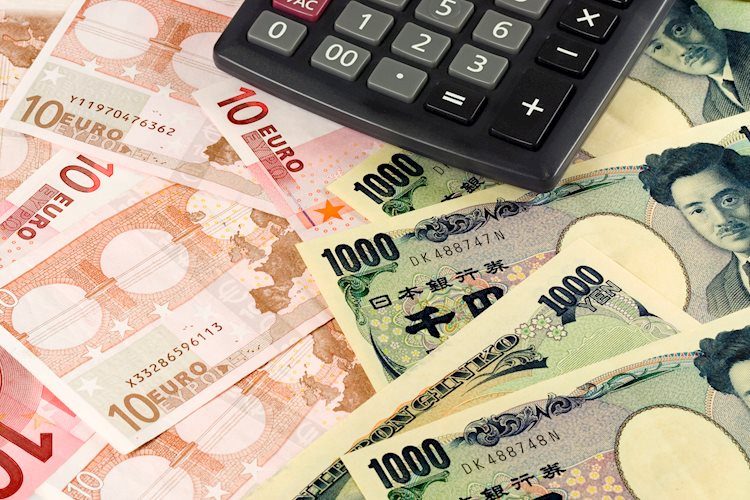EUR/JPY is trading below the resistance level of 162.00, with investors keeping a close watch on the upcoming release of German and Eurozone inflation data. The preliminary Harmonized Index of Consumer Prices (HICP) for December is expected to have a significant impact on market expectations for the European Central Bank (ECB) interest rate decision in the upcoming policy meeting. Currently, traders are anticipating a 25 basis point interest rate cut, pushing the Deposit Facility rate to 2.75%. However, signs of a sharp slowdown in inflation could lead to expectations of a larger rate cut of 50 bps.
Most ECB policymakers are comfortable with the market expectations of continued policy easing due to the increasing risks to the Eurozone economy. Additionally, the Euro’s performance is also influenced by speculation surrounding how much incoming US President Donald Trump will raise import tariffs on the Eurozone come January 20. Trump’s threats during the election campaign to increase tariffs on Eurozone goods have kept markets on edge.
In Japan, the Yen remains relatively stable as markets are closed for New Year celebrations. However, concerns persist about Japan’s potential intervention in the foreign exchange market to stabilize the Yen against excessive movements. Japanese Finance Minister Katsunobu Kato has indicated that authorities are closely monitoring FX activities and are prepared to take action to prevent the Yen from weakening too much.
The Euro is the currency used in the 19 Eurozone countries and is the second most traded currency globally after the US Dollar. The Euro accounts for a significant portion of foreign exchange transactions, with the EUR/USD pair being the most traded currency pair worldwide. The European Central Bank (ECB) in Frankfurt is responsible for setting interest rates and managing monetary policy for the Eurozone, with a primary mandate to maintain price stability.
Inflation data, measured by the Harmonized Index of Consumer Prices (HICP), is crucial for the Euro, as higher inflation may lead to interest rate hikes to control it. Economic indicators such as GDP, PMIs, employment, and consumer sentiment surveys also impact the Euro’s performance. A strong economy attracts foreign investment and may prompt the ECB to raise interest rates, strengthening the Euro. Additionally, the Trade Balance data can influence the Euro’s value, with a positive balance strengthening the currency due to increased demand for exports.
In conclusion, the EUR/JPY pair remains in a tight range below 162.00, with investors awaiting the release of important inflation data for the Eurozone. The ECB is expected to cut interest rates at its upcoming policy meeting, with market expectations currently at a 25 basis point reduction. The Euro’s performance is also influenced by speculation surrounding US President-elect Donald Trump’s trade policies towards the Eurozone. In Japan, markets are closed for New Year celebrations, but concerns persist about potential FX intervention by authorities. Understanding these factors is crucial for traders and investors looking to navigate the dynamics of the Euro and Japanese Yen in the forex market.











